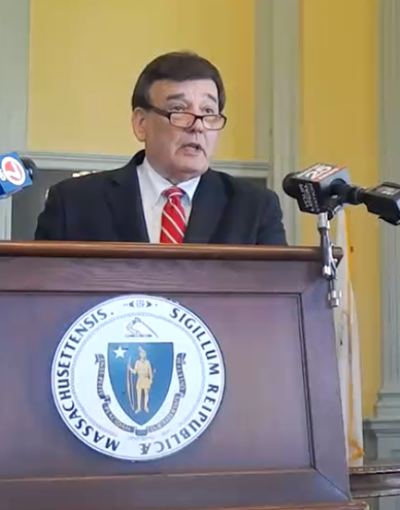Pacheco calls for immigration reform amid migrant crisis
Like many of the towns and cities through Massachusetts, Wareham residents are witnessing firsthand the effects of the migrant crisis.
Although it is not confirmed whether the unsheltered folks staying at two motels in town are migrants, some have begun drawing their own conclusions, including the Select Board.
Sen. Marc Pacheco (D-Taunton) along with 65 members of the Massachusetts legislature are sending a bipartisan letter to congress urging for federal legal immigration reform, Pacheco announced at a press conference Thursday, Sept. 21.
Pacheco said the workforce limitations for migrants are affecting the U.S. economy and the existing immigration policy does not have an established system capable of “adequately” authorizing new workers and preventing entry of unauthorized individuals.
This call for reform comes a few weeks after Massachusetts Governor Maura Healey declared a state of emergency in an effort to increase federal aid and work authorizations for the influx of migrant families to Massachusetts.
Over 6,300 families, many of which are migrants, are in emergency housing statewide — double the amount of last year, according to Healey. Although this crisis is nationwide, Massachusetts is the only state to have a “right to shelter” law for qualifying families with children.
However, housing for the unsheltered is limited and the state has called on lodging facilities, including hotels, motels and inns, to help out.
Business owners across the state have lent their facilities to this cause, including two the Wareham.
The Wareham Select Board announced at a Sept. 19 meeting that 24 unsheltered families are being housed by the state at the Atlantic Motel, 7 Depot Street. Additional families are being housed at another undisclosed lodging facility in town.
Although the Select Board is unsure if these families are Massachusetts residents or migrants, some on town Facebook pages have begun to speculate that they are migrants.
Kevin Connor, press secretary for the Massachusetts Executive Office of Housing and Liveable Communities, said his office does not collect identification information from those seeking shelter, so he is unsure whether the families in Wareham are migrants.
The family shelter system began in the 1980s to ensure children and their families were not homeless, he said, adding it wasn’t designed to handle a “humanitarian crisis.”
Connor said the migrants who have come to Massachusetts are fleeing violence and persecution and the state has an obligation to provide for them, and it can, but it is running low on the resources necessary to do it.
This is why Pacheco and his fellow legislators are pushing for federal legal immigration reform.
Pacheco said the families who come to Massachusetts want to provide for themselves, but that isn’t an option if they cannot get work authorization.
He said the changes he is calling for would not only help these families support themselves, but would also help the U.S. economy grow while still protecting its borders.
There are approximately 92,049 unemployed residents in Massachusetts with around 243,000 vacant jobs, according to Pacheco.
He said as the immigration policy currently stands, hundreds of thousands of backlogs for employment authorization forms are piling up.
For example, in the first two quarters of Fiscal Year 2023, 483,000 employer-sponsored visa applications were filed against the 85,000 annual statutory quota, meaning only one in every six applicants will be able to obtain a visa, Pacheco said.
“There shouldn't be anybody here that is not willing to try to do what they can to work if they're able to,” he said. “That's what generation after generation of immigrants have done that has helped to build this economy that we're proud to call the United States of America.”
A majority on the Select Board voiced opposition toward the families staying at Wareham lodging facilities, citing concerns for safety and lack of communication from the state.
The Board will vote at its next meeting to decide whether a letter of opposition will be sent to the state.













